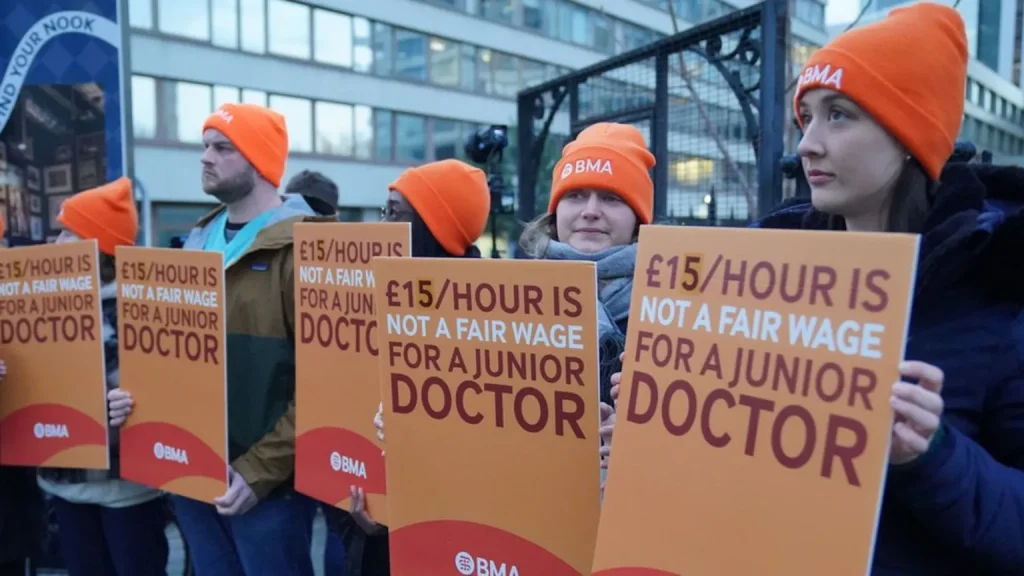
Junior doctors in England, represented by the British Medical Association (BMA), will stage a five-day strike from 07:00 BST on 27 June, a week before the general election, in an ongoing pay dispute with the government.
The BMA announced the strike due to the absence of a credible new pay offer after talks began in mid-May. Junior doctors have requested a 35% pay rise to compensate for 15 years of below-inflation pay increases. Despite a nearly 9% pay rise in the last financial year, the BMA walked out of talks last year when an additional 3% pay rise was discussed.
Prime Minister Rishi Sunak criticized the timing of the strike, suggesting it appeared “incredibly political.” He noted that the strike call during the election campaign made it “hard to escape that conclusion,” especially since a constructive resolution had been found with other NHS staff.
BMA junior doctors committee co-chairs Dr. Robert Laurenson and Dr. Vivek Trivedi stated: “We made clear to the government that we would strike unless discussions ended in a credible pay offer. For more than 18 months, we have been asking Rishi Sunak to put forward proposals to restore the pay junior doctors have lost over the past 15 years.”
The strike, the 11th by junior doctors since March 2023, will require senior doctors to cover services, causing significant disruption to elective services, such as routine operations. Junior doctors comprise nearly half of the NHS doctor workforce, with two-thirds being BMA members.
In a campaign event in Devon, Prime Minister Sunak emphasized the political motivations behind the strike, stating: “It’s hard to escape that conclusion, given the timing and to call a strike in an election campaign, especially as we found a constructive resolution with the remainder of the NHS workforce.”
Shadow Health Secretary Wes Streeting pledged that a Labour government would negotiate with junior doctors to end the strikes. In contrast, Northern Ireland is also experiencing strike action by junior doctors, with another walkout planned for early June, while strikes in Wales are on hold as talks continue. In Scotland, junior doctors accepted a government pay offer, avoiding strikes.
Saffron Cordery, deputy chief executive at NHS Providers, expressed concern about the impact of the strike on patients. “This strike will inevitably hit patients hard,” she said. “As always, trust leaders and their teams will do everything they can to protect patient safety. They will spend countless hours preparing for the walkout, which includes cancelling and rescheduling appointments. This is time they would prefer to spend improving patient care and tackling sky-high waiting lists.”
The ongoing strike actions have led to nearly 1.5 million cancelled appointments and operations in the NHS in England, with an estimated cost of £3 billion.








